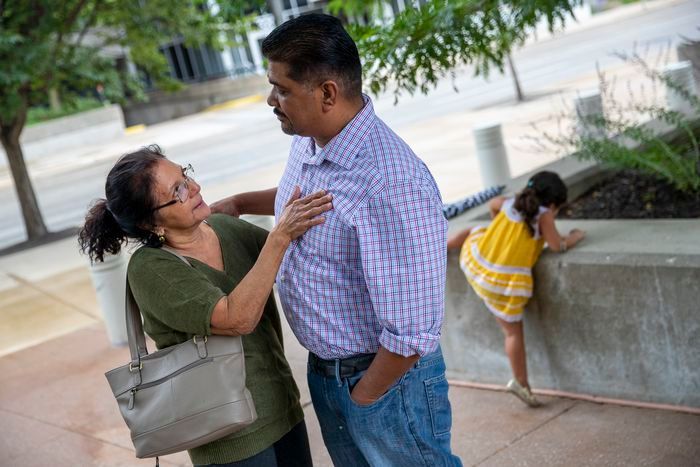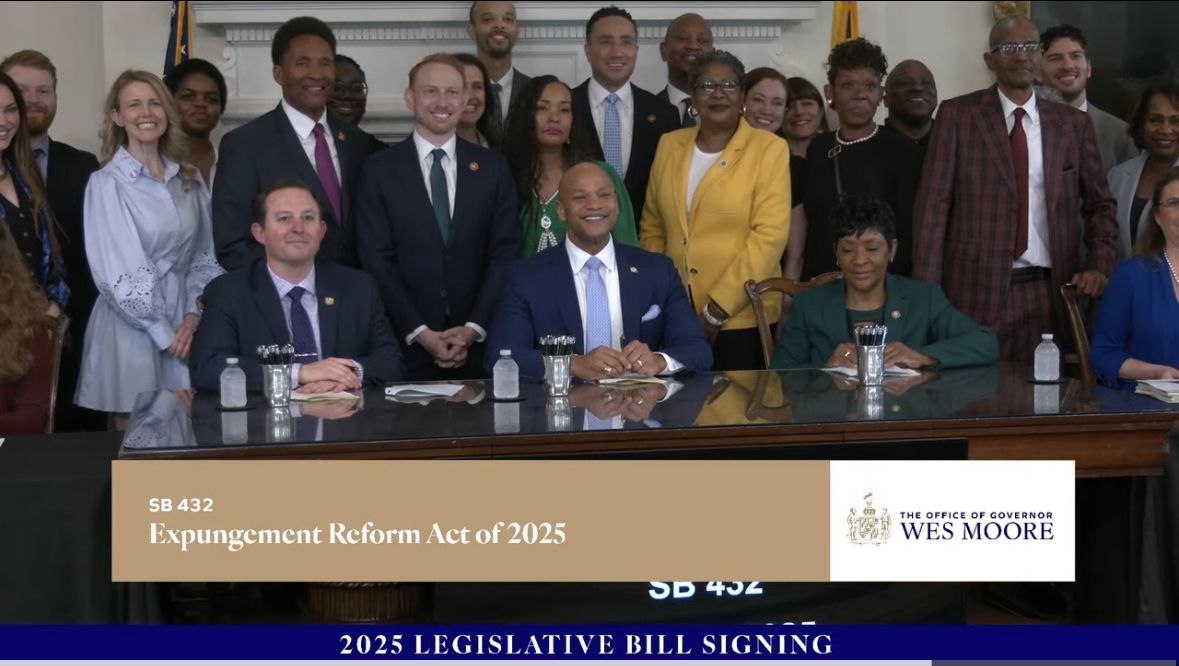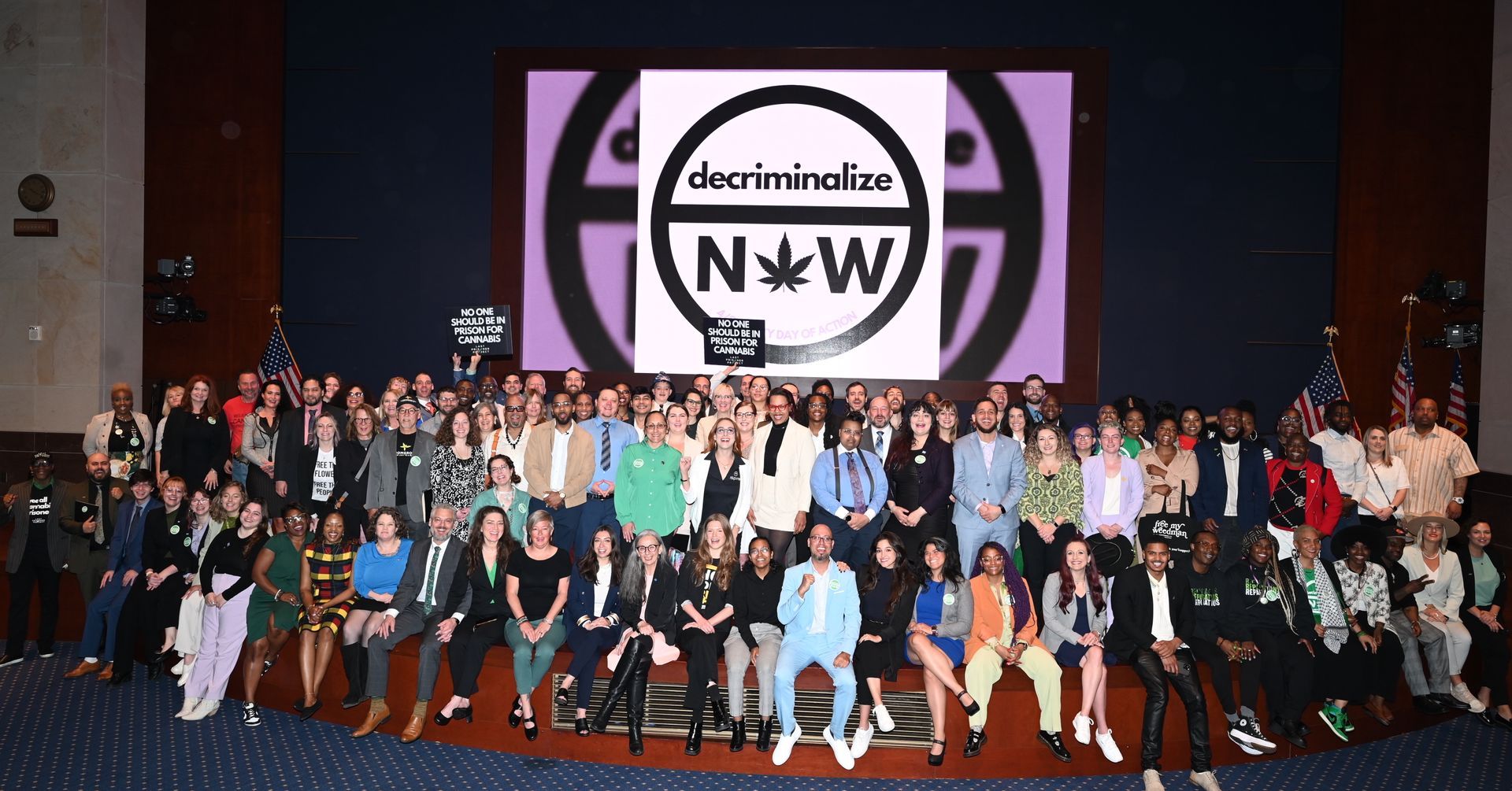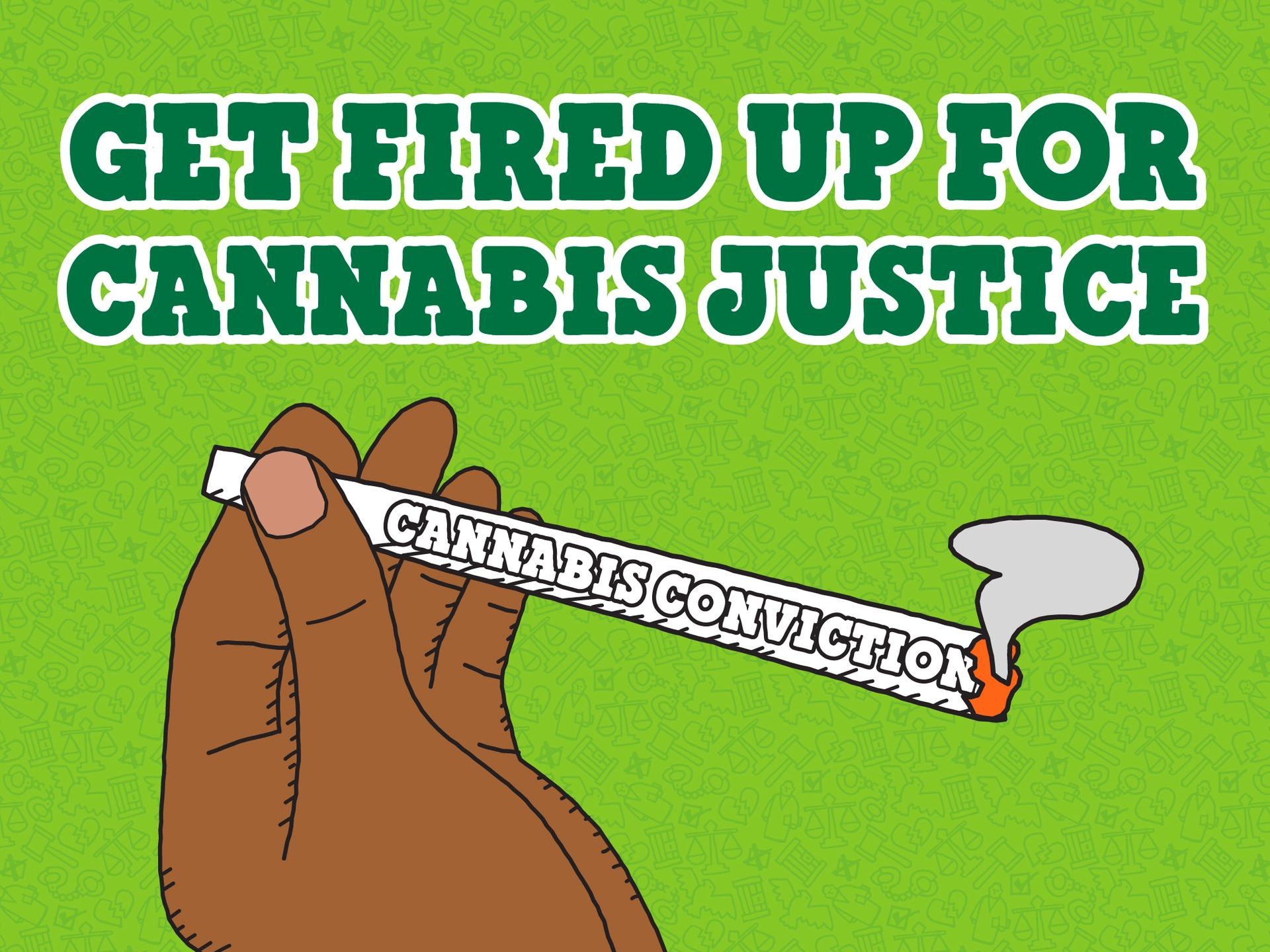Berta Garcia Discusses Fighting for Her Son Danny Trevino's Freedom Serving 16-Year Sentence for Cannabis
Berta Garcia emerges as a beacon of resilience, courage, and unwavering love. Her life took an unexpected turn when her son, Danny Trevino, found himself in the unjust web of federal cannabis charges, leading to a staggering 16-year sentence. Berta's journey is not just a personal struggle but a testament to the broader impact of outdated drug laws that continue to affect countless lives.
As we discuss Berta's life raising her son and now as a caregiver to his daughter, her granddaughter, we uncover a narrative that goes even beyond a mother's love. It's yet another story that challenges the very foundation of cannabis laws in our society and should continue to force us to question a justice system that perpetuates such lengthy sentences for non-violent offenses.
Don't turn a blind eye to this emotional journey as we shine a light on Berta Garcia's fight for justice, her advocacy for reform, and the impact of draconian drug policies on families across the nation. This is not just Danny's story; it's a call to examine the structures that have led to the incarceration of tens of thousands of individuals for crimes that are increasingly being reconsidered, reevaluated, and rejected by this country as incarceration-worthy.
In the following pages, we'll explore Berta's unwavering determination for the release of her son, the secret to keeping the faith to continue to fight, and the hope she carries for a future where families aren't torn apart by outdated laws. Berta Garcia's story is a testament to the strength of a mother's love and the urgent need for change in our justice system.
Last Prisoner Project: Thank you Mrs. Garcia for taking the time to speak with me and sharing your heartbreaking journey. Your advocacy for your son Danny Trevino has been such an inspiration. Could you introduce yourself and share what you have been fighting for?
Berta Garcia: My name is Berta Garcia. I am the mother of Danny Trevino, who is serving a 16-year sentence in federal prison for cannabis charges.
Last Prisoner Project: When did you realize that the boy you raised was somewhat of a legacy legend in Lansing? Some even referred to him as the “Professor of Pot”. At what point did you realize how influential Danny was in the community?
Berta Garcia: I was not aware of my son’s influence, passion, and legacy for the cannabis industry until I started to see such a huge following in his social media network, as well as other media outlets. I would only be made more aware when my son was charged, tried, and convicted that I realized what a huge role my son played in the cannabis industry.
Last Prisoner Project: Danny was very involved in the fight for legalization in Michigan. It’s important to remind the legal industry that If it weren't for people like Danny, there would be no legal industry.
Berta Garcia: Danny was very involved in the fight for legalization. He was a tremendous part of the rallies, not just organizing and speaking, but also funding out of pocket. Billboards that he paid for promoting the industry and working to pass the cannabis referendum in 2008 to make it legal. My son, Danny saw the medical needs of the people who came from all walks of life. When it became legal and passed overwhelmingly he was enthusiastic to share his knowledge with the people who believed in and would benefit from the medical plant. Years later, when he was in federal court I sat there in horror as they persecuted my son. The prosecutor presented to the jury a sandwich size baggie with marijuana that allegedly was seized in one of the over 30+raids and now 5 years after the fact a story recently published article heading GIANT POT FARM JUST A MISDEMEANOR, COURT SAYS. Where is the justice in that? Aren’t we one country, with one set of rules?
Last Prisoner Project: You called Danny one of the most honest people you know, while he was going through the legal process, did you have any advice for him?
Berta Garcia: I advised him to have faith in the judicial system, to let his attorney tell his, my son’s truth. A challenge presented itself, my son had to personally tell his truth and take the stand to defend himself. In retrospect, I wish I could say I gave him sound advice. Our judicial system, I feel is in theory only. Not everyone is treated equally.
Last Prisoner Project: Danny is your only son and the oldest of three children. Can you share a bit about how you raised Danny and his sisters?
Berta Garcia: When I was a child, I knew when I grew up and became a parent, I was not going to swear at or around my kids and I was not going to allow them to swear in my house. So that's why my kids don't swear…at least, not in my household. Not in my presence. I grew up going to church and raised my children in church. Before Danny went to prison, he taught his daughter to pray. She would kneel next to him and they’d pray. And even though he isn't with her, she still prays every night. I've worked all my life. My children did not work in the fields, but my family did. My dad had us work in the fields in the summertime, and he would say, “If you don't want to work in the fields all your life, you have to get your education. You have to go to school”. I instilled those values in my children. I got married right out of high school. I do have some college, but I don't have a degree, but both of my girls do. My son did some college but he never got his degree. He felt another path was right for him. I have 6 sisters and 3 brothers, family is all he has ever known. His surroundings were his aunts and uncles that have gone to college. So he knew his expectations. I always told the kids it's not IF you're going to college, it was you ARE going to college. That was not an option. My daughters graduated from Catholic schools. I had to work the Bingo games so that I could have a break on tuition. My son did not have an interest in that. To be honest, I don't know if I could have afforded three children in a Catholic school, but I would have managed. I would borrow money and then pay it off and borrow money, pay it off.
Last Prisoner Project: So being raised in the church with a good family, how did Danny's incarceration impact the family?
Berta Garcia: Danny has two sons, and a daughter eldest son is his son in every aspect, despite biological differences. His younger son was in his twenties when his daughter was born. My son was over the moon, as he always wanted a daughter to love and to spoil relentlessly. She was his princess and he was her “Papi”. He had 50/50 custody of his daughter and when he was incarcerated, I was given dual power of attorney over her. She is loved and I am always reminding her of how much her Papi loves her and how much I am fighting for him to come home to us. Our family has been fractured by my son being in prison. It has broken his family, creating issues that they are still unable to resolve. Before he left he told them “I know you’re going to fight, but take turns apologizing. Don’t keep track of who did what, you have to stay together.” So yes, it has been extremely sad, and difficult.
Last Prisoner Project: So it's safe to say that your son was kind of the glue that kind of kept everybody together, and his incarceration has put a break in that closeness?
Berta Garcia: Oh! He's always asking me, “Mom, have you heard from my kids? Have you seen my kids?” My son reserved Sunday to hang out with his daughter. He would take her to Macy’s department store and treat her to whatever clothes she wanted and then they would go to their favorite restaurant. He misses her tremendously. Now he has a fractured family and is helpless to do anything about it because of his incarceration.
Last Prisoner Project: Sentencing is one of the most difficult parts of the process, because you have yet to start your time, and you're just learning what your future or your proposed future will look like. So when Danny was sentenced, how old was his daughter?
Berta Garcia: My son was convicted in late August and had the weekend to get his affairs in order. His daughter was 3 and was turning 4 on September 11th, so we had an early birthday celebration for her so that her Papi could be part of it. We were driven to Grand Rapids where he would have to surrender. The media was there and there were photos of him saying goodbye to her. One is a picture of her running to her papi. She cried and cried and maybe she knew what was happening, maybe she didn’t. Perhaps she was reacting to my emotions. She understood something was happening, but at her age, I don’t know that she fully understood that her Papi was being taken away from her. Before surrendering, he held her in his arms and said “I’m going away and I won’t be here for a bit”, but what exactly does “a little bit” mean in the mind of a three-year-old? She didn’t know if that meant days, weeks, months, or years!
Last Prisoner Project: Now that she's gotten a little bit older, does she understand it more? Does she understand what prison is? Does she understand why he's there, and what does she say about that?
Berta Garcia: He explains to her that he did not do anything wrong, but they said he did. She told him she was writing a letter to President Biden and my son told me not to guide her letter writing, let it be her thoughts and words. In the letter, she wrote to President Biden. She wrote, "My dad had stores, but everybody else has stores too. He's sorry if he did something wrong”. She knows that prison is a place that keeps him apart from her life. She knows it’s unfair too.
Last Prisoner Project: The most effective letter is when it comes from the heart, no matter what it sounds like, and it sounds like she has made her mind up to advocate for her Dad.
Berta Garcia: She wants to bring her dad home, and whatever it takes she will say. When we pray, we ask. God to bring her Papi home. That's what she calls him. Papi is Daddy in Spanish. She recently told me about an incident last year, when she was in the second grade. I guess somebody must have found out that her dad was in prison and a little girl that she hung out with took her aside, and she asked her if her daddy was in jail. She told me "All of a sudden I just started crying and crying, so hard that my body was shaking.". Of course, I immediately wanted to protect my granddaughter and asked if the little girl was trying to be mean because I was going to speak to the teacher about it. She said she didn't know, but she didn't think so because the girl was her friend. I think she just wanted to comfort her after finding out about her dad. She said that she just cried and cried on the playground...and then she was okay. Things like that continue to impact her because it’s a reminder that she can’t be with her Dad. I don’t want her to think her dad did something wrong.
Last Prisoner Project: Do you get to visit Danny? Is your communication mostly video chat, phone, or writing?
Berta Garcia: We've gone to see him a couple of times. The first time we drove five hours and when we got there they told us that visits were canceled because of covid. I had confirmed the visitation the previous day, but they just apologized. We went another time and we were able to visit for one hour because of COVID-19. It was his daughter’s first time seeing him since he’d been incarcerated, but he had to be six feet away, and we couldn't hug him. We went again recently and were able to visit longer and hug.
Last Prisoner Project: How did you feel having to leave the facility after the anticipation of finally being able to see your son, and you had to leave?
Berta Garcia: Disappointed! And heart broken but my heart broke for my little granddaughter. She didn’t cry when we had to leave, she just covered her face with her hands.
Last Prisoner Project: Mrs. Garcia, you have become very active in speaking out for the release of your son. As a mother who did the best you could raising your son, who felt he was providing a service for those who needed it, what would you say to President Biden about the continued incarceration of people for cannabis?
Berta Garcia: I read that it costs the Federal Government $40,000 a year to house a person in prison. If there are roughly 2,900 people in Federal prison at $40,000 a year. It’s costing the federal government 116 million dollars a year to keep them in prison! We the people, the taxpayers, are funding this injustice. Distribute that money to schools and to teachers who deserve it, don’t use it to incarcerate victimless cannabis prisoners. As a parent, President Biden knows how it feels when your son is being targeted and what injustice feels like because of his own experiences. Why doesn't he reach out to the Doj and say “Let’s get these people home!”
Last Prisoner Project: He doesn't even have to reach out to the DOJ. He has the executive power to right this wrong himself. He doesn't have to ask anyone. He can sign an executive order releasing all Federal cannabis prisoners today if he wants to.
Berta Garcia: Oh, my gosh! I did not know that. Then I’d ask President Biden to please send my son home! Send everyone’s sons, daughters, fathers, mothers, and brothers home. Keep your promise that “Nobody should be in prison for marijuana.” Think of the thousands of families that you can reunite with just the stroke of a pen.
Last Prisoner Project: And that's the really sad part. Mrs. Garcia, thank you so much for opening up about the difficulties of keeping your family together in the face of such adversity. LPP will continue to support you in the fight to reunite your family.







